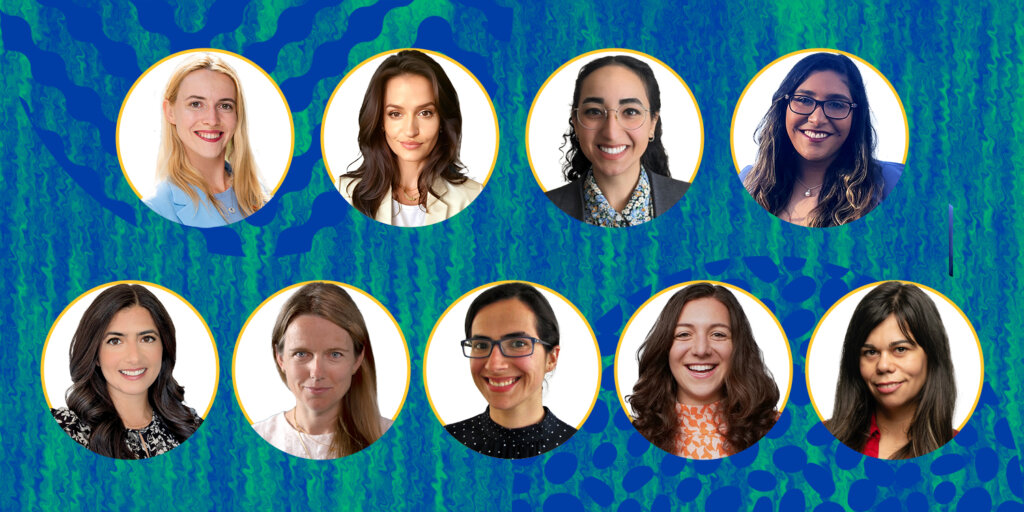Home » Meet the Founders Set to Lead the Climate Movement of Tomorrow
Meet the Founders Set to Lead the Climate Movement of Tomorrow

The RBC Women in Cleantech Accelerator is making strides to support women-led startups in the climate technology sector, which continues to see a severe funding disparity for women founders compared to their male counterparts. In the U.S., only 6.6% of climate tech funding went to women-led firms last year, and similar challenges persist in Canada. This calls for urgent action and support, especially as climate change impacts intensify.
The Accelerator, a two-year program, assists nine women founders by equipping them with essential tools through tailored workshops, mentorship, networking opportunities, marketing strategies, and capital connections. This month, the program welcomed its third cohort, featuring startups focused on various innovative solutions aimed at combatting climate issues.
Among the ventures, Diana Virgovicova founded Xatoms after discovering a method to eliminate water pollutants using quantum chemistry. Her company aims to improve access to clean water for 1.5 billion people globally and empower women in developing regions by reducing the time spent fetching water. The startup is already collaborating with organizations in several countries.
Tatiana Estevez's Permalution harnesses technology to collect drinking water from clouds and fog, which could significantly benefit areas facing water scarcity. Their devices are designed both for personal-sized use and large-scale applications, providing versatile solutions to water deficits.
Another innovative venture is Synoro Med, led by Aditi Sitolay, which is tackling the massive waste problem in hospitals caused by single-use plastics. The Vancouver-based startup is developing a system for sterilizing and reusing medical supplies, focusing on creating a reusable IV bag, which could drastically reduce hospital waste while ensuring safety.
TerraFixing, based in Ottawa, has developed a direct air capture technology to remove carbon dioxide from the atmosphere, particularly effective in cold climates where conventional methods struggle. Using zeolite minerals, their innovative approach works efficiently during frigid temperatures, addressing the critical climate change effects faced in northern regions.
Christine Gabardo’s CERT Systems aims to revolutionize chemical production by using a proprietary electrochemical process that converts carbon dioxide into essential chemicals without fossil fuel consumption. Their method relies on renewable energy and addresses both waste emissions and the decarbonization of the chemical industry simultaneously.
Seedark, founded by Blaine Pearson, is working on modernizing the seed supply chain to combat the ongoing seed crisis worsened by climate change. By enhancing seed traceability, Seedark seeks to preserve seed viability and promote biodiversity.
Sofia Bonilla leads ALT-PRO Advantage, a Toronto startup creating sustainable, meat-free pet food from insects, algae, and fungi. This innovation aims to reduce the environmental footprint of pet food while catering to pets with allergies.
Annie Dahan’s Seacork Studio is developing biodegradable soundproofing panels from seaweed, providing an eco-friendly alternative to plastic materials that effectively reduce carbon emissions throughout their lifecycle.
Lastly, Viridis Research, co-founded by Macarena Cataldo, focuses on combating microplastic pollution using electro-oxidation technology to treat industrial wastewater, thereby recycling water and eliminating toxic chemicals.
The RBC Women in Cleantech Accelerator is focal in fostering innovation, leading to sustainable solutions that address climate change while enhancing opportunities for women entrepreneurs in the sector.
MaRS Discovery District
https://www.marsdd.com/
MaRS is the world's largest urban innovation hub in Toronto that supports startups in the health, cleantech, fintech, and enterprise sectors. When MaRS opened in 2005 this concept of urban innovation was an untested theory. Today, it’s reshaping cities around the world. MaRS has been at the forefront of a wave of change that extends from Melbourne to Amsterdam and runs through San Francisco, London, Medellín, Los Angeles, Paris and New York. These global cities are now striving to create what we have in Toronto: a dense innovation district that co-locates universities, startups, corporates and investors. In this increasingly competitive landscape, scale matters more than ever – the best talent is attracted to the brightest innovation hotspots.


